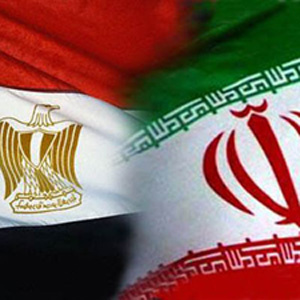Maybe a Honeymoon
Could Iran and Egypt get closer? Interview with Mohammad Menhaj, North African affairs analyst and Iran’s former ambassador to Libya

In a press conference during his visit to Egypt, when asked about the major obstacles against the expansion of Iran-Egypt relations, parliament spokesman Ali Larijani stated that as two influential regional states with rich history, Iran and Egypt should be closer. But what are the true obstacles to resumption of bilateral ties after a thirty-year freeze? Mohammad Menhaj, Iran’s former ambassador to Libya has provided us with some insight.
Do you think Iran’s diplomatic approach to Egypt can bring it any achievements at the current circumstances?
No. I don’t think interaction between Iran and Egypt could bear any fruit. Mr. Ahmadinejad’s administration has adopted what I call a ‘selective policy’ vis-à-vis the Arab World. Iran at the present tries to treat the problems of Yemen, Iraq and Lebanon in a different way. As long as it doesn’t look at the entirety of Middle East issues as a package, it can’t expect any achievements from contacts with Egypt.
What is behind the increasing diplomatic exchanges between Iran and Egypt?
Egypt has always been an influential country in Middle East. A role model looked up to by many Arab countries, considered to be playing a relatively constructive regional role. Iran can have a successful diplomacy if it establishes warm ties with Egypt and Saudi Arabia. Of course, at the current circumstances, Tehran has a difficult path towards reconciliation with Saudi Arabia. It may be easier to resume relations with Egypt and aware of this fact, Tehran has concentrated its efforts on this objective.
Considering Egypt’s strategic relations with the United States, do you see a bright future for Tehran-Cairo ties?
There may be a honeymoon, but chances for a deep, stable relation are really low, particularly with the policies the incumbent administration has adopted.
Are Tehran’s efforts connected to the developments in Lebanon such as the formation of the new cabinet?
Lebanon is a key focus of Iran and Egypt’s diplomacy, but Egypt is truly wary of Iran’s policies, as I said especially with the present administration, and looks at its efforts with suspicion. Lebanon is not an exception.
Do you think Iran’s diplomatic approach to Egypt can bring it any achievements at the current circumstances?
No. I don’t think interaction between Iran and Egypt could bear any fruit. Mr. Ahmadinejad’s administration has adopted what I call a ‘selective policy’ vis-à-vis the Arab World. Iran at the present tries to treat the problems of Yemen, Iraq and Lebanon in a different way. As long as it doesn’t look at the entirety of Middle East issues as a package, it can’t expect any achievements from contacts with Egypt.
What is behind the increasing diplomatic exchanges between Iran and Egypt?
Egypt has always been an influential country in Middle East. A role model looked up to by many Arab countries, considered to be playing a relatively constructive regional role. Iran can have a successful diplomacy if it establishes warm ties with Egypt and Saudi Arabia. Of course, at the current circumstances, Tehran has a difficult path towards reconciliation with Saudi Arabia. It may be easier to resume relations with Egypt and aware of this fact, Tehran has concentrated its efforts on this objective.
Considering Egypt’s strategic relations with the United States, do you see a bright future for Tehran-Cairo ties?
There may be a honeymoon, but chances for a deep, stable relation are really low, particularly with the policies the incumbent administration has adopted.
Are Tehran’s efforts connected to the developments in Lebanon such as the formation of the new cabinet?
Lebanon is a key focus of Iran and Egypt’s diplomacy, but Egypt is truly wary of Iran’s policies, as I said especially with the present administration, and looks at its efforts with suspicion. Lebanon is not an exception.

